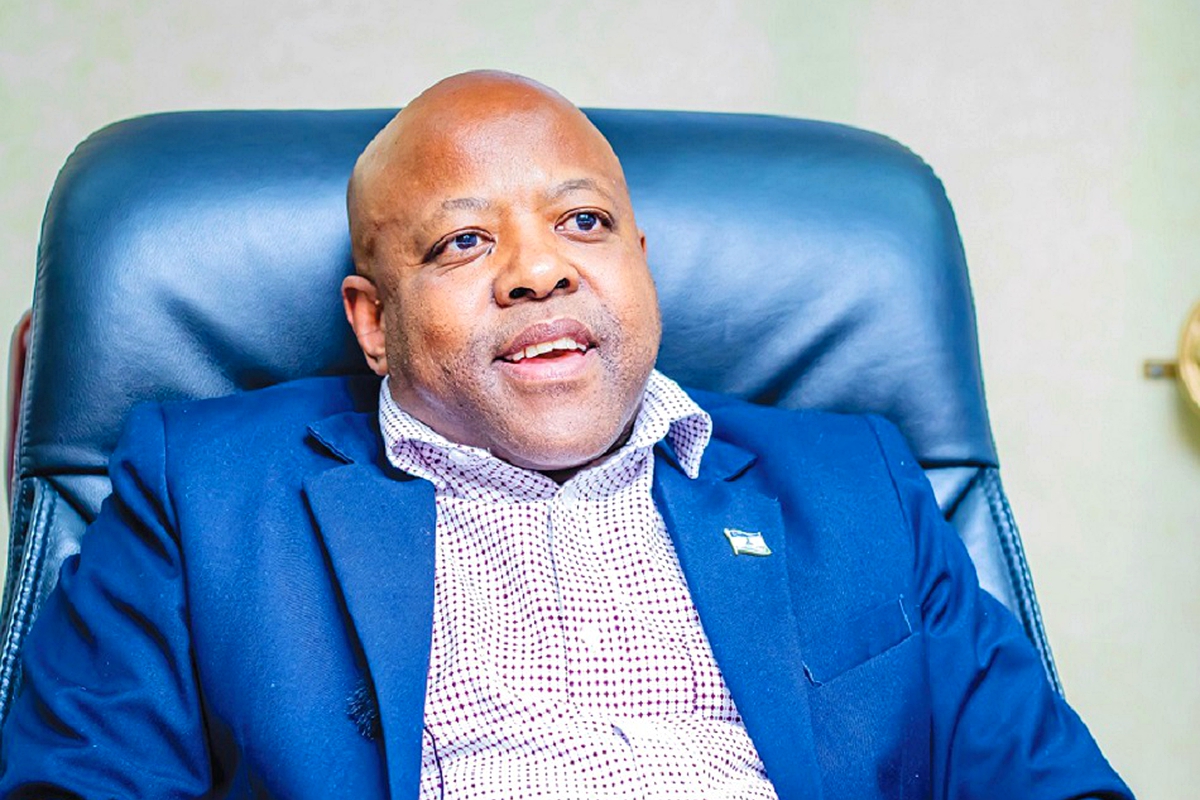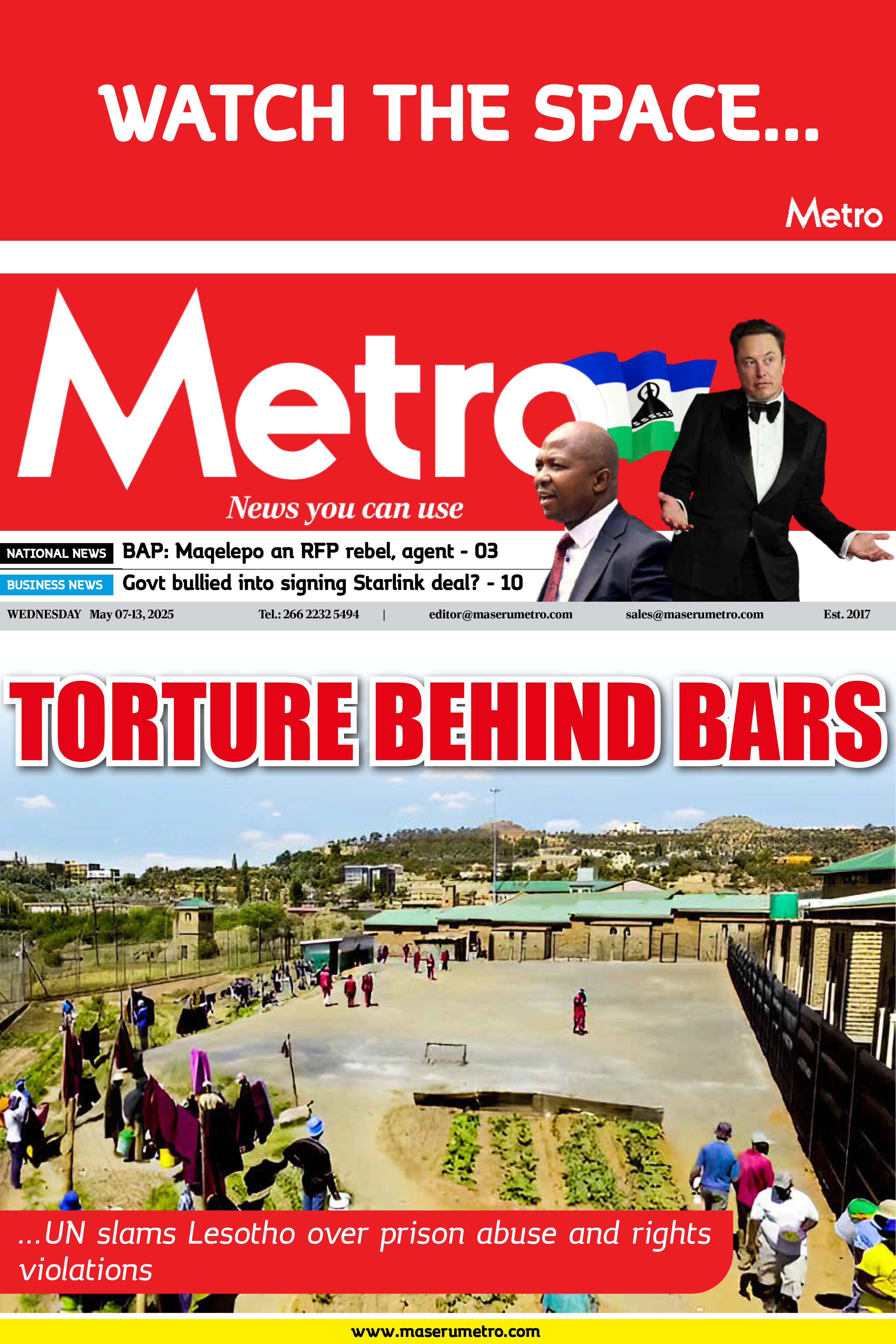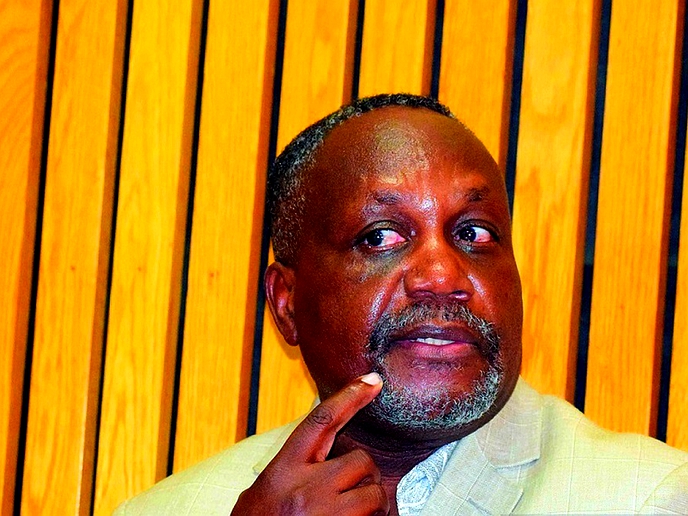THE Minister of Natural Resources, Mohlomi Moleko, says the importance of validating the contents of the Energy Bill 2023 is to ensure that the proposed bill aligns with current developments and addresses the relevant challenges the sector is experiencing.
business
Aug. 18, 2023
RETHABILE MOHONO
3 min read
Lesotho reviews challenges mines bring to communities

The Minister of Natural Resources, Mohlomi Moleko
Story highlights
He made these remarks this week when delivering his key note address at an energy bill stakeholders’ validation workshop in Maseru.
The seminar was among others aimed at enlightening Basotho on the pressing issues surrounding the local mines and the Lesotho Highlights Water Project (LHWP).
This event was a long-awaited response to years of complaints from Basotho people, who have been lamenting the loss of their precious minerals to foreign entities.
It is a well-known fact that Lesotho owns a mere 30 percent of its mines, while foreigners hold a staggering 70 percent.
Similarly, the water project contributes $1.6 billion to the local economy without Lesotho injecting any capital into either sector.
The workshop was graced by the presence of Moleko, the Principal Secretary for the Natural Resources, officials from Giz, the National University of Lesotho (NUL), senior government officials, and other energy stakeholders, including NGOs, Engen, Puma, and other notable figures.
The aim of this gathering was also to discuss pertinent issues surrounding the mining sector, such as national benefits from the mines, non-compliance with the Mines and Mineral Act 2005 (regulation on diamond transportation), the Income Tax Amendment Bill 2021, the Tax Administration Amendment Bill 2002, and artisan mining.
In his remarks, Moleko, said the bill, in addressing the imperatives of the energy policy, aims to ensure that Lesotho has sufficient energy to meet the country’s demand and even trade with its neighbours.
The bill, he said, is a critical document that has the attention of all development partners, the private sector, and multinational development banks eager to assist Lesotho in providing high-quality energy services to its citizens.
He expressed his appreciation for the invaluable support the government has received from the European Union (EU) since 2015, stating that energy is now a key area of focus receiving assistance from the EU.
Moleko said mines and the (LHWP) are the main players in Lesotho’s economy, despite public concerns that the country is being deprived of its minerals.
He dismissed the notion that Lesotho should own 50 percent shares of the mines without injecting any capital into the mines or the LHWP, stating that the country benefits more from both sectors through corporate social responsibilities, royalties, dividends, subcontracts, and tax, to mention but a few.
Enjoy our daily newsletter from today
Access exclusive newsletters, along with previews of new media releases.
The minister was also quick add that Lesotho actually obtains more than 60 percent of the mines' turnover.
Similarly, Botswana has recently reviewed its mines and minerals legislation to tighten up laws on mine rehabilitation amid rising global competition for the continent's minerals as world powers seek new sources of metals needed for the transition to a lower carbon economy.
A recent Botswana mining review reports that the country’s Minister of Mining, Lefoko Moagi, has warned African governments to be wary of the risks created by rising global competition for the continent's minerals.
Moagi emphasised the dangers of compromising on how to legislate, how to do environmental permitting, and how to consult communities when there is a rush to push production due to the money being dangled.
He said there is a great danger that Africa must watch out for, adding that Botswana has reviewed its mines and minerals legislation to "tighten up" laws on mine rehabilitation.






